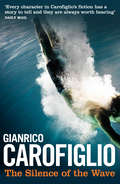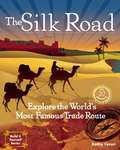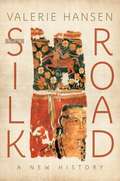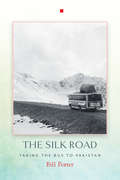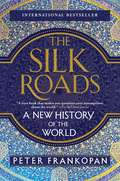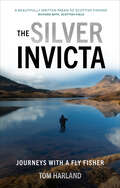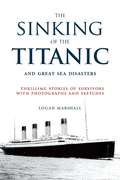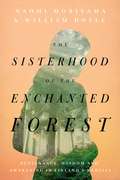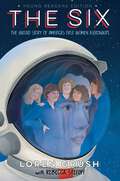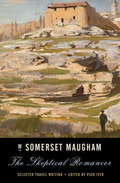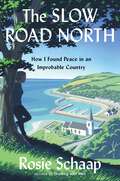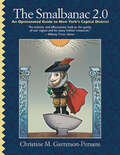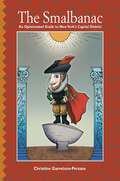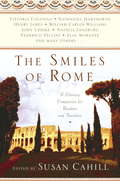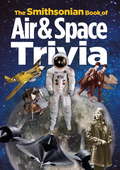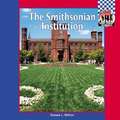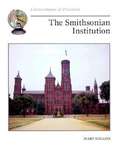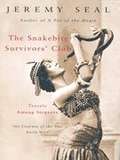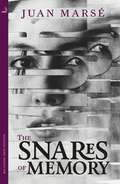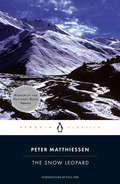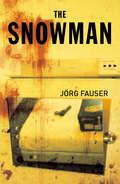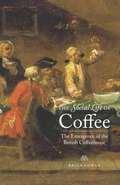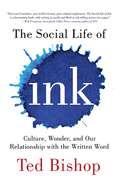- Table View
- List View
The Silence of the Wave
by Howard Curtis Gianrico CarofiglioA stand-alone thriller from best-selling Italian crime writer Gianrico Carofiglio, whose work has been translated into twenty-four languages. Every Monday and Thursday, Roberto Marías crosses Rome on foot for his appointment with his psychiatrist. There he sits in silence, flooded by memories. He remembers surfing with his father as a child. He remembers the treacherous years he spent working as an undercover agent, years that taught him how cynicism and corruption are not merely external influences but exist within us as well. His past has left him devastated, but now his psychiatrist's words, his hypnotic strolls through Rome, and a chance meeting with a woman named Emma--who, like Roberto, is ravaged by a profound guilt--begin to painfully revive him. And when eleven-year-old Giacomo asks Roberto to help him conquer his nightmares, Roberto at last achieves a true rebirth. A thriller about human faults, frailties, and the painful bond between fathers and sons. Praise for The Silence of the Wave: "A novel distinguished by the natural gift of prose as smooth and silent as a perfect wave." --Paolo Di Stefano, Corriere della Sera "A literary jigsaw full of plot twists." --Luciana Sica, La Repubblica
The Silk Road
by Kathy CeceriFrom Roman times until the Age of Exploration, the Silk Road carried goods and ideas across Central Asia between two major centers of civilization, the Mediterranean Sea and China. In The Silk Road: Explore the World's Most Famous Trade Route, readers ages 9-12 will learn about the history, geography, culture, and people of the Silk Road region.Marco Polo was just one of many who set out on the Silk Road in search of wealth, power, or knowledge. These adventurers braved vast deserts, towering mountain peaks, warring tribes, and marauding bandits. Silk garments, wool rugs, and fine glass were the prizes for those who survived the trip. Activities using everyday materials bring the Silk Road to life. Young readers will see how ideas in math, science, religion, and art were spread by travelers along with the treasures they found.The Silk Road takes readers on an exciting, interactive adventure to a faraway place and celebrates its important role in human history and development..
The Silk Road: A New History
by Valerie HansenThe Silk Road is as iconic in world history as the Colossus of Rhodes or the Suez Canal. But what was it, exactly? It conjures up a hazy image of a caravan of camels laden with silk on a dusty desert track, reaching from China to Rome. The reality was different--and far more interesting--as revealed in this new history. In The Silk Road, Valerie Hansen describes the remarkable archeological finds that revolutionize our understanding of these trade routes. For centuries, key records remained hidden-sometimes deliberately buried by bureaucrats for safe keeping. But the sands of the Taklamakan Desert have revealed fascinating material, sometimes preserved by illiterate locals who recycled official documents to make insoles for shoes or garments for the dead. Hansen explores seven oases along the road, from Xi'an to Samarkand, where merchants, envoys, pilgrims, and travelers mixed in cosmopolitan communities, tolerant of religions from Buddhism to Zoroastrianism. There was no single, continuous road, but a chain of markets that traded between east and west. China and the Roman Empire had very little direct trade. China's main partners were the peoples of modern-day Iran, whose tombs in China reveal much about their Zoroastrian beliefs. Silk was not the most important good on the road; paper, invented in China before Julius Caesar was born, had a bigger impact in Europe, while metals, spices, and glass were just as important as silk. Perhaps most significant of all was the road's transmission of ideas, technologies, and artistic motifs. The Silk Road is a fascinating story of archeological discovery, cultural transmission, and the intricate chains across Central Asia and China.
The Silk Road: Taking the Bus to Pakistan
by Bill PorterTo travel upon the Silk Road is to travel through history. Millennia older than California's Camino Real, and perhaps even a few years senior to the roads of the Roman Empire, the Silk Road is a network of routes stretching from delta towns of China all the way to the Mediterranean Sea - a cultural highway considered to be essential to the development of some of the world's oldest civilizations. It was upon this road that that Chinese silk traveled and was exchanged for incense, precious stones, and gold from India, the Middle East and as far the Mediterranean, contributing to the great tradition of commercial and idea exchange along the way.In the fall of 1992, celebrated translator, writer, and scholar Bill Porter left his home in Hong Kong and decided to travel from China to Pakistan by way of this famous and often treacherous Silk Road. Equipped with a plastic bottle of whiskey, needle-nose pliers, and the companionship of an old friend, Porter embarks upon the journey on the anniversary of Hong Kong's liberation from the Japanese after World War II and concludes in Islamabad, the capital of Pakistan, at the end of the monsoon season. Weaving witty travel anecdotes with the history and fantastical mythology of China and the surrounding regions, Porter exposes a world of card-sharks, unheard-of ethnic minorities, terracotta soldiers, nuclear experiments in the desert, emperors falling in love with bathing maidens, monks with miracle tongues, and a giant Buddha relaxing to music played by an invisible band.The Silk Road is the second of a three-book memoir series about Porter's travels in and around China to be published by Counterpoint. With an eye for cultural idiosyncrasies and a vast knowledge of history, Porter continues to make with his mark as an expert and travel writer.
The Silk Roads: A New History of the World
by Peter Frankopan<P>The epic history of the crossroads of the world--the meeting place of East and West and the birthplace of civilization It was on the Silk Roads that East and West first encountered each other through trade and conquest, leading to the spread of ideas, cultures and religions. <P>From the rise and fall of empires to the spread of Buddhism and the advent of Christianity and Islam, right up to the great wars of the twentieth century--this book shows how the fate of the West has always been inextricably linked to the East. <P>Peter Frankopan realigns our understanding of the world, pointing us eastward. He vividly re-creates the emergence of the first cities in Mesopotamia and the birth of empires in Persia, Rome and Constantinople, as well as the depredations by the Mongols, the transmission of the Black Death and the violent struggles over Western imperialism. <P> Throughout the millennia, it was the appetite for foreign goods that brought East and West together, driving economies and the growth of nations. From the Middle East and its political instability to China and its economic rise, the vast region stretching eastward from the Balkans across the steppe and South Asia has been thrust into the global spotlight in recent years. <P>Frankopan teaches us that to understand what is at stake for the cities and nations built on these intricate trade routes, we must first understand their astounding pasts. Far more than a history of the Silk Roads, this book is truly a revelatory new history of the world, promising to destabilize notions of where we come from and where we are headed next. <P><b>A New York Times Bestseller</b>
The Silver Invicta: Journeys with a Fly Fisher
by Tom HarlandThe Silver Invicta is a stream of impressions from a fishing life, in its varying moods, colored with plenty of whisky and eccentric company. Join Tom Harland on his light-hearted journeys with his fly rod; take part in his triumphs and disasters on rough, wild camping trips and share his encounters with the wildlife of Scotland’s rivers and lochs. The ‘Silver Invicta’ was the traditional fly which was taken by Tom’s first salmon and is also a nod to the spirit of Scotland’s embattled migratory fish. Tom has fished throughout his local Scottish Borders, England, the Western Isles and New Zealand (a country he lived and worked in for two years), but his real passion is for the brown trout of the hill lochs of Assynt in the North-west Highlands. Open this treasure trove of a book to share the pleasure the author finds through fishing respectfully in magical, wild, and seldom-visited places.
The Sinking of the Titanic and Great Sea Disasters: Thrilling Stories of Survivors with Photographs and Sketches
by Logan Marshall Stephen SpignesiThe Sinking of the Titanic and Great Sea Disasters is an exciting collection of first-hand stories describing the catastrophe of Titanic’s maiden voyage as told by its survivors shortly after the ship sank. Originally written and published in 1912, Logan Marshall’s book was the very first attempt to solve the mystery of the accident and relieve the heartache it stirred internationally. Marshall narrates the personal stories of Titanic’s passengers before, during, and after the sinking of the ill-fated ship. This book takes us back in time and forces us to understand the trauma of our ancestors from a not-so-comfortable distance. Listen to the voices of real passengers tell their own touching stories of tragedy and see the photographs and sketches that accompany their stories. Also included are records of previous great disasters of the sea, descriptions of the development of safety and life-saving appliances, and a plain statement of causes of such catastrophes and how to avoid them. Skyhorse Publishing, as well as our Arcade imprint, are proud to publish a broad range of books for readers interested in history—books about World War II, the Third Reich, Hitler and his henchmen, the JFK assassination, conspiracies, the American Civil War, the American Revolution, gladiators, Vikings, ancient Rome, medieval times, the old West, and much more. While not every title we publish becomes a New York Times bestseller or a national bestseller, we are committed to books on subjects that are sometimes overlooked and to authors whose work might not otherwise find a home.
The Sinner's Grand Tour: A Journey Through the Historical Underbelly of Europe
by Tony PerrottetThe Grand Tour: the cultural rite of passage from London to Paris, Berlin, Venice, Florence, Rome, and down to the boot of Italy, which linked the Continent's most spectacular artistic treasures Sex and travel have always been intertwined, and never more so than on the classic Grand Tour of Europe in the eighteenth and nineteenth centuries. Today the Continent is still littered with salacious remnants of that golden age, where secret boudoirs, notorious dungeons, and forbidden artifacts lured travelers all the way from London to Capri. In The Sinner's Grand Tour, celebrated historian and travel writer Tony Perrottet sets off to discover a string of legendary sites and relics that are still kept far from public view. In southern France, an ancient text leads him inside the château of the Marquis de Sade, now owned by fashion icon Pierre Cardin. In Paris, an 1883 prostitute guide helps him discover the Belle Époque fantasy brothel Le Chabanais and the lost "sex chair" of King Edward VII. Renaissance documents in the Vatican Secret Archives point the way to the Pope's very own apartments in Vatican City, wherein lies the fabled Stufetta del Bibbiena, a pornography-covered bathroom painted by Raphael in 1516. With his unique blend of original research, sharp wit, and hilarious anecdotes, Perrottet brings us a romping travel adventure through the scandalous backrooms of historical Europe.
The Sisterhood of the Enchanted Forest: Sustenance, Wisdom, and Awakening in Finland's Karelia
by William Doyle Naomi MoriyamaWhat would happen if you built one of the world&’s most advanced societies inside a forest—and strove to make made women full partners in power?After living for twenty-five years in New York, Naomi Moriyama moved with her husband and co-author William Doyle and their seven-year-old child to the vast forest of Finland's Karelia, a mysterious region on the Russian border that helped inspire J.R. R. Tolkien&’s Middle Earth fantasies. She entered a life-altering zone of tranquility, peace, and beauty, the spiritual heart of the nation ranked as the happiest nation on Earth, with among the world's most empowered women. Finland is also the country with cleanest air and water and the best schools, a country where motherhood and fatherhood are championed by law, childhood is revered, schoolchildren are required to play outdoors multiple times a day, and trains contain mini-libraries and mini-playgrounds for children to enjoy. It was here in the Karelian forest that Naomi found a culinary symphony of succulent wild edibles, herbs, berries, mushrooms and fish, all freshly plucked from the moss-carpeted forest and sparkling clear streams. She also found something that changed her life—a tribe of invincible women who became her soul-sisters. As an idyllic summer and fall gave way to a sub-Arctic winter of mind-bending darkness and cold, Naomi faced her fears and her future. Over the course of six unforgettable months with her family and her new &“sisters&”, she found her life transformed, and discovered the power that lay within her all along. Then she tried to leave. But she kept coming back. Come, take a journey deep into Europe's most distant, magical wilderness, and join the sisterhood of the enchanted forest.
The Six -- Young Readers Edition: The Untold Story of America's First Women Astronauts
by Loren GrushThe extraordinary true story of America&’s first female astronauts hailed as &“suspenseful, meticulously observed, enlightening&” by Margot Lee Shetterly, #1 New York Times bestselling author of Hidden Figures, now adapted for young readers.Sally Ride may have been the first US woman in space, but did you know there were five other incredible American women who helped blaze the trail for female astronauts by her side? When NASA sent astronauts to the moon in the 1960s and 1970s, the agency excluded women from the corps, arguing that only military test pilots—a group women were also aggressively barred from—had the right stuff. But as the 1980s dawned so did new thinking, and six elite women scientists—Sally Ride, Judith Resnik, Anna Lee Fisher, Kathy Sullivan, Shannon Lucid, and Rhea Seddon—set out to prove they had exactly the right stuff to become the first US women astronauts. In The Six Young Readers Edition, acclaimed journalist Loren Grush shows how these brilliant and courageous women fought to enter STEM fields they were discouraged from pursuing, endured claustrophobic—and often deeply sexist—media attention, underwent rigorous survival training, and prepared for years to take multi-million-dollar equipment into orbit. Told with contributions from nearly all the living participants and now adapted for young readers, this book is an inspiring testament to their struggles, accomplishments, and sacrifices and how they built the tools that made the space program run. It&’s a legacy that lives on to inspire young people today.
The Skeptical Romancer
by W. Somerset MaughamW. Somerset Maugham was one of the seminal writers of the twentieth century, and his travel writing has long been considered among his finest work. Now, acclaimed travel writer Pico Iyer maps out a masterful tour of these vivid, evocative pieces that are collected here for the first time.Maugham worked as a secret agent in Russia, published novels in London, staged plays in New York, and traveled throughout Europe, Asia, India, and the United States, chronicling his travels, wherever he went, with exceptional insight. Beginning with "In the Land of the Blessed Virgin" and culminating in "A Partial View," Iyer selects vignettes of Maugham's razor-sharp prose that track his transformation from a boyish traveler in Spain to a worldly man of letters.This is Maugham at his most keenly observant, direct, and powerful.From the Hardcover edition.
The Skyscraper and the City: The Woolworth Building and the Making of Modern New York
by Gail FenskeOnce the world's tallest skyscraper, the Woolworth Building is noted for its striking but incongruous synthesis of Beaux-Arts architecture, fanciful Gothic ornamentation, and audacious steel-framed engineering. Here, in the first history of this great urban landmark, Gail Fenske argues that its design serves as a compelling lens through which to view the distinctive urban culture of Progressive-era New York. Fenske shows here that the building's multiplicity of meanings reflected the cultural contradictions that defined New York City's modernity. For Frank Woolworth--founder of the famous five-and-dime store chain--the building served as a towering trademark, for advocates of the City Beautiful movement it suggested a majestic hotel de ville, for technological enthusiasts it represented the boldest of experiments in vertical construction, and for tenants it provided an evocative setting for high-style consumption. Tourists, meanwhile, experienced a spectacular sightseeing destination and avant-garde artists discovered a twentieth-century future. In emphasizing this faceted significance, Fenske illuminates the process of conceiving, financing, and constructing skyscrapers as well as the mass phenomena of consumerism, marketing, news media, and urban spectatorship that surround them. As the representative example of the skyscraper as a "cathedral of commerce," the Woolworth Building remains a commanding presence in the skyline of lower Manhattan, and the generously illustrated Skyscraper and the City is a worthy testament to its importance in American culture.
The Slow Road North: How I Found Peace in an Improbable Country
by Rosie SchaapFrom the acclaimed author of the “wonderfully funny and openhearted” (NPR) Drinking with Men comes a poignant, wrenching, and ultimately hopeful book—equal parts memoir and social history—that follows the author, after a series of tragic losses, to Northern Ireland, where she finds a path toward healing.Rosie Schaap had a solid career as a journalist and a life that looked to others like nonstop fun: all drinking and dining and traveling to beautiful places—and getting paid to write about it. But under the surface she was reeling from the loss of her husband and her mother—who died just one year apart. Caring for them had claimed much of her daily life in her late thirties. Mourning them would take longer.It wasn’t until a reporting trip took her to the Northern Irish countryside that Rosie found a partner to heal with: Glenarm, a quiet, seaside village in County Antrim. That first visit made such an impression she returned to make a life. This unlikely place—in a small, tough country mainly associated with sectarian strife—gave her a measure of peace that had seemed impossible elsewhere.Weaving personal narrative and social history, The Slow Road North is a moving and wise look at how a community can offer the key to healing. It’s a portrait of a complicated place at a pivotal time—through Brexit, a historic school integration, and a pandemic—and a love letter to a village and a culture.
The Smalbanac 2.0: An Opinionated Guide to New York's Capital District (Excelsior Editions)
by Christine M. Garretson-PersansWith new and updated entries on everything from food, shopping, and the arts to people, history, and places to visit, The Smalbanac 2.0 is a wry, affectionate, and practical guide to New York State's capital city and surrounding area. Packed with information, this guide is perfect not only for visitors, new students, and those relocating to the area but also for long-term residents who want to get out of their comfort zones and explore the many hidden—and some not-so-hidden—treasures the area has to offer.
The Smalbanac: An Opinionated Guide to New York's Capital District (Excelsior Editions)
by Christine M. Garretson-Persans"An eclectic and affectionate look at the quirks of our region and its many hidden treasures." -- The Times Union"Is there anything to do here?" In The Smalbanac, Christine Garretson-Persans answers a resounding "Yes!" From food, shopping, and the arts to people, history, and places to go, The Smalbanac offers a wry, affectionate, and practical survival guide to the Capital Region, perfect not only for visitors, new students, and those relocating to the area, but also for long-term residents who want to get out of their "comfort zones" and explore the many hidden (and some not-so-hidden) treasures the area has to offer.
The Smiles of Rome
by Susan CahillTake a Roman holiday with some of the world's greatest writersExplore the Palatine with Elizabeth Bowen. Visit the temple of the Vestal Virgins with Georgina Masson. Analyze Michelangelo's Moses with Sigmund Freud. Stroll through ancient streets with Goethe and with Henry James. Share Alice Steinbach's midnight epiphany on a shabby hotel balcony. Learn the art of love from Ovid. Visit villas and gardens with Edith Wharton. Enjoy Rome's myriad moods and pleasures with Robert Browning, Eleanor Clark, Susan Vreeland, and many others.An irresistible collection of writing about one of the world's most beloved destinations, The Smiles of Rome spans the centuries from ancient times to the present day. Each essay resonates with the richness and turmoil of the past and overflows with a great wealth of fascinating facts and intriguing tidbits for today's avid readers and travelers."Rome," writes Susan Cahill, "has the power to blow your mind and heart." This delicious, many-layered collection honoring the city that is the heart and soul of European civilization has the same power to thrill.From the Trade Paperback edition.
The Smithsonian Book of Air & Space Trivia
by Smithsonian InstitutionWho was the first person to dine in space? How long was the Wright brothers's first successful flight? What famous aircraft was named after a grape-flavored soft drink? What toy based on an animated film accompanied astronauts on a shuttle mission in 2000? These questions and many more are answered in The Smithsonian Book of Air & Space Trivia. In addition to the canon of space and aviation information, the pages are illustrated with more than 125 objects from the Smithsonian National Air and Space Museum's collections.
The Smithsonian Institution
by Tamara L. BrittonAn introduction to the history and museums of the Smithsonian Institution in Washington, D.C.
The Smithsonian Institution (Cornerstones of Freedom)
by Mary CollinsDescribes the history of the Smithsonian Institution, its current collections and challenges.
The Snakebite Survivors' Club: Travels Among Serpents
by Jeremy SealTravel writer Seal determined to overcome his phobia about snakes by journeying to America, Australia, Africa, and India in search of some the world's most notorious and deadly snakes and to meet the people who live with them. He found others like him living in constant fear, witch doctors who use snakes as instruments of vengeance, and a case of murder by rattlesnake in the southern US. He also cites scientific facts.
The Snares of Memory
by Juan MarséIn January 1949 on an otherwise unremarkable day in an unremarkable Barcelona neighbourhood cinema, a prostitute is murdered in cold blood in the projection booth by the assistant projectionist, one Fermín Sicart.More than thirty years later, a screenwriter resolves to determine the truth behind her murder, and seeks out Fermin, who has served his time. But though Fermin remembers killing his victim, and exactly how he did it, he cannot for the life of him recall why.The Snares of Memory, by one of the great Spanish men of letters, is at once an investigation of memory, motive and murder and a pointed dig at the Spanish film industry of the second half of the twentieth century.
The Snow Leopard: (penguin Orange Collection) (Picador Bks. #16)
by Peter Matthiessen Pico IyerAn unforgettable spiritual journey through the Himalayas by renowned writer Peter Matthiessen (1927-2014)<P><P> In 1973, Peter Matthiessen and field biologist George Schaller traveled high into the remote mountains of Nepal to study the Himalayan blue sheep and possibly glimpse the rare and beautiful snow leopard. Matthiessen, a student of Zen Buddhism, was also on a spiritual quest to find the Lama of Shey at the ancient shrine on Crystal Mountain. As the climb proceeds, Matthiessen charts his inner path as well as his outer one, with a deepening Buddhist understanding of reality, suffering, impermanence, and beauty. <P> This Penguin Classics edition features an introduction by acclaimed travel writer and novelist Pico Iyer.<P> Winner of the National Book Award
The Snowman
by Anthea Bell Jörg Fauser"Prose that penetrates the reader's mind like speed, fast paced, without an ounce of fat."--WeltwocheHe's found five pounds of top--quality Peruvian cocaine in a suit-case. Pur-sued by the police and drug traffickers the luckless Blum falls prey to the frenzied paranoia of the cocaine addict and dealer. This is a fast-paced thriller written with acerbic humour, a hardboiled evocation of drug-fuelled existence and a penetrating observation of those at the edge of German society.Having broken his addiction to on heroin at the age of thirty, Jörg Fauser spent much of the rest of his life dependent on alcohol. He died aged forty-three in 1987, run over by a truck at four am on a German highway.
The Social Life of Coffee: The Emergence of the British Coffeehouse
by Brian CowanThe Social Life of Coffee refers extensively to early modern source material in various media, printed, manuscript, and visual.
The Social Life of Ink
by Ted BishopA rich and imaginative discovery of how ink has shaped culture and why it is here to stay Ink is so much a part of daily life that we take it for granted, yet its invention was as significant as the wheel. Ink not only recorded culture, it bought political power, divided peoples, and led to murderous rivalries. Ancient letters on a page were revered as divine light, and precious ink recipes were held secret for centuries. And, when it first hit markets not so long ago, the excitement over the disposable ballpoint pen equalled that for a new smartphone--with similar complaints to the manufacturers. Curious about its impact on culture, literature, and the course of history, Ted Bishop sets out to explore the story of ink. From Budapest to Buenos Aires, he traces the lives of the innovators who created the ballpoint pen--revolutionary technology that still requires exact engineering today. Bishop visits a ranch in Utah to meet a master ink-maker who relishes igniting linseed oil to make traditional printers' ink. In China, he learns that ink can be an exquisite object, the subject of poetry, and a means of strengthening (or straining) family bonds. And in the Middle East, he sees the world's oldest Qur'an, stained with the blood of the caliph who was assassinated while reading it. An inquisitive and personal tour around the world, The Social Life of Ink asks us to look more closely at something we see so often that we don't see it at all.
